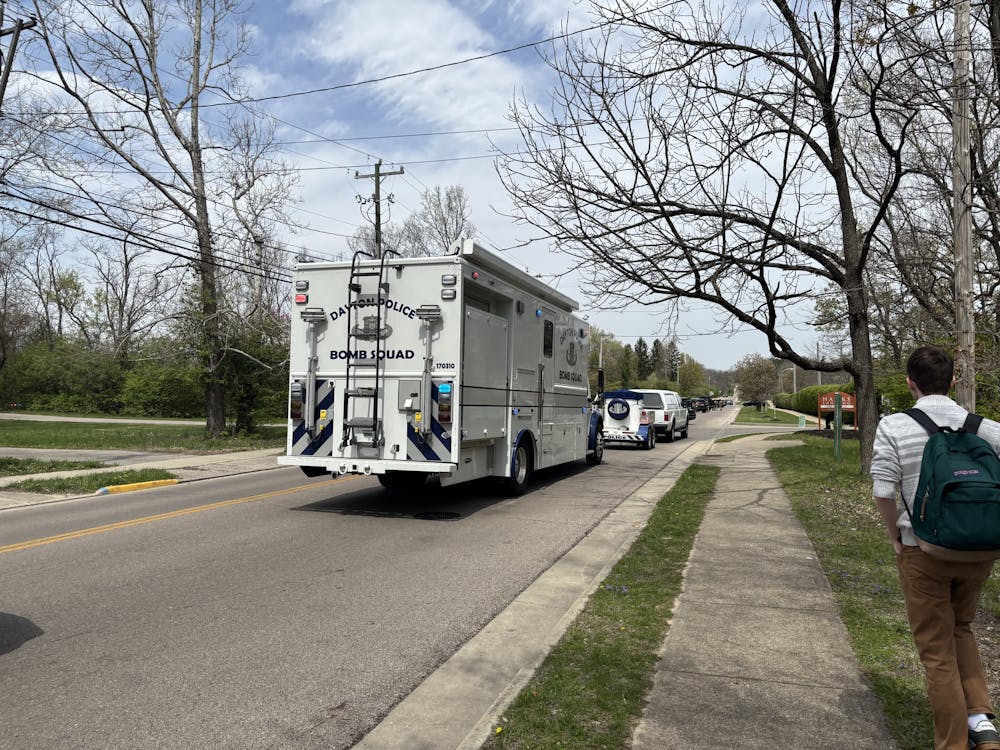SPECIFICS OF UNIVERSITY PROTOCOL OUTLINED BY OESCR
Josh was found passed out on Cook Field in mid-January earlier this semester. His roommate had tracked Josh's location, which was shared via his phone, and took him home to Dorsey Hall.
When Josh came back to his dorm, he was visibly intoxicated and throwing up in the bathroom. He appeared incoherent and unresponsive.
Josh's roommate poured water all over him to no effect and right away made the decision to call 911 for help. Josh was able to receive medical attention and utilize the Good Samaritan policy through Miami University.
"I am personally thankful for the Good Samaritan policy," said Josh, a Miami University first-year who agreed to talk with The Miami Student on the condition of anonymity. "I'd rather have to go the hospital and the counseling and the classes that come with the policy than experience the consequences that come with that risk...which we have already seen this semester. I think our issue is that no one knows about the policy at Miami."
The controversy regarding the Good Samaritan policy is that many students on campus are unaware of the specifics: in which situations does a student qualify for Good Samaritan, what are the costs associated with it -- both financial and punitive -- and does it apply both Uptown and on campus?
The Good Samaritan policy ensures that students in need of medical help and who either call for themselves or a friend will not be subject to legal or university consequences.
However, agreeing to use the policy requires that the student pay a $250 fee for counseling and a $200 fee for a four hour alcohol class, both of which are charged to the student's Bursar Bill.
Additionally, when a student has used the Good Samaritan policy once during the academic year, they cannot qualify for the policy again the rest of that school year. Only the student who receives the medical attention is the one who "uses" the Good Samaritan policy.
"I think our school needs to educate, especially freshmen, on the Good Samaritan policy," Josh said. "I didn't know what the consequences would be. My [resident director] didn't really know. I didn't know if the policy only applied to the legal aspect either."
There are several prerequisites for qualifying for the Good Samaritan policy, according to follow-up letters from the Office of Ethics and Student Conflict Resolution mailed to students who have used the Good Samaritan Policy.
For example, if an individual is found with a fake I.D., then they do not qualify for the policy or if a student bumps into a wall and leaves a dent, they also do not not qualify for the policy due to the property damage inflicted by the student. Additionally, if an individual resists help or commits assault against another person, they do not qualify for the policy.
Enjoy what you're reading?
Signup for our newsletter
One of the issues Miami administrators have when clarifying the Good Samaritan policy for students is distinguishing what the consequences are when a call goes to the Oxford police versus Miami's police, said Dean of Students Mike Curme.
"The one thing we want students to know is if you call for a friend or if you call for yourself, you will not get in trouble from the perspective of our judicial system at Miami," Curme said.
Curme reiterated that the policy may be voided if the student becomes combative or there is another significant behavioral issue that could force the school to reconsider.
"Communicating that there might be subtle differences between Oxford and Miami is hard, because how we communicate to students is difficult," Curme said.
The Oxford Fire Department (OFD) often fields these calls from students in need of medical attention due to drinking.
The fire chief, John Detherage, believes there are always peaks and valleys when it comes to the number of alcohol calls the OFD receives. He is not aware that the Good Samaritan policy has affected the number of students his department has transported to McCullough-Hyde.
"Being worried about getting in trouble is not nearly as bad as getting dead," Detherage said. "I would encourage anybody to call for their friends or themselves if they think they have drunk too much."
Josh believes that at the end of day, following his experience with the Good Samaritan policy, he is more prone to call for help for others who may be in need of medical attention.
"Should someone need help, I would be more inclined to call then I would have been first semester," Josh said. "After the classes and the counseling I do monitor what I am doing more, and I set a plan for myself of where I am going to be and if I'm in trouble what numbers I'll need."



